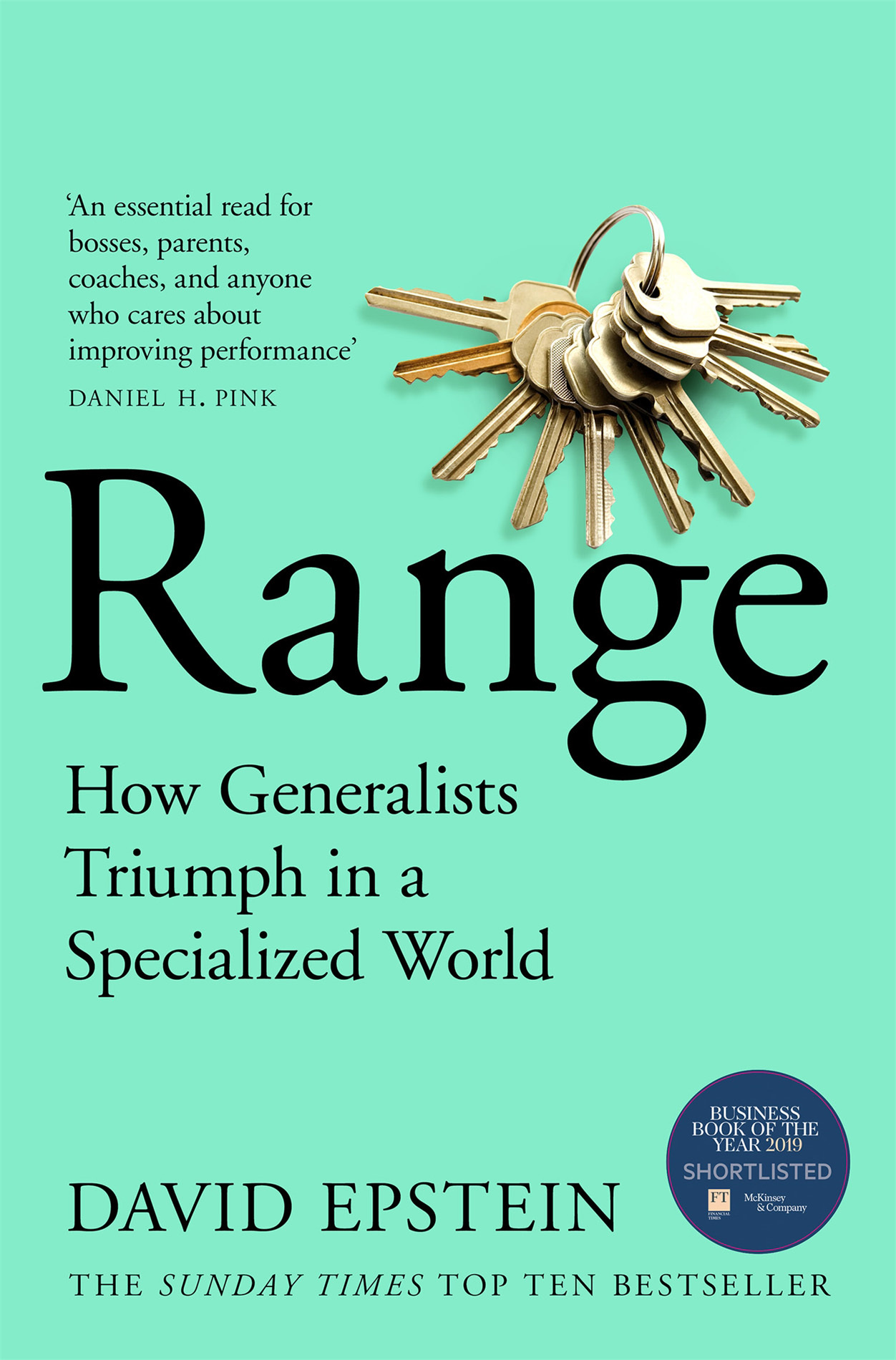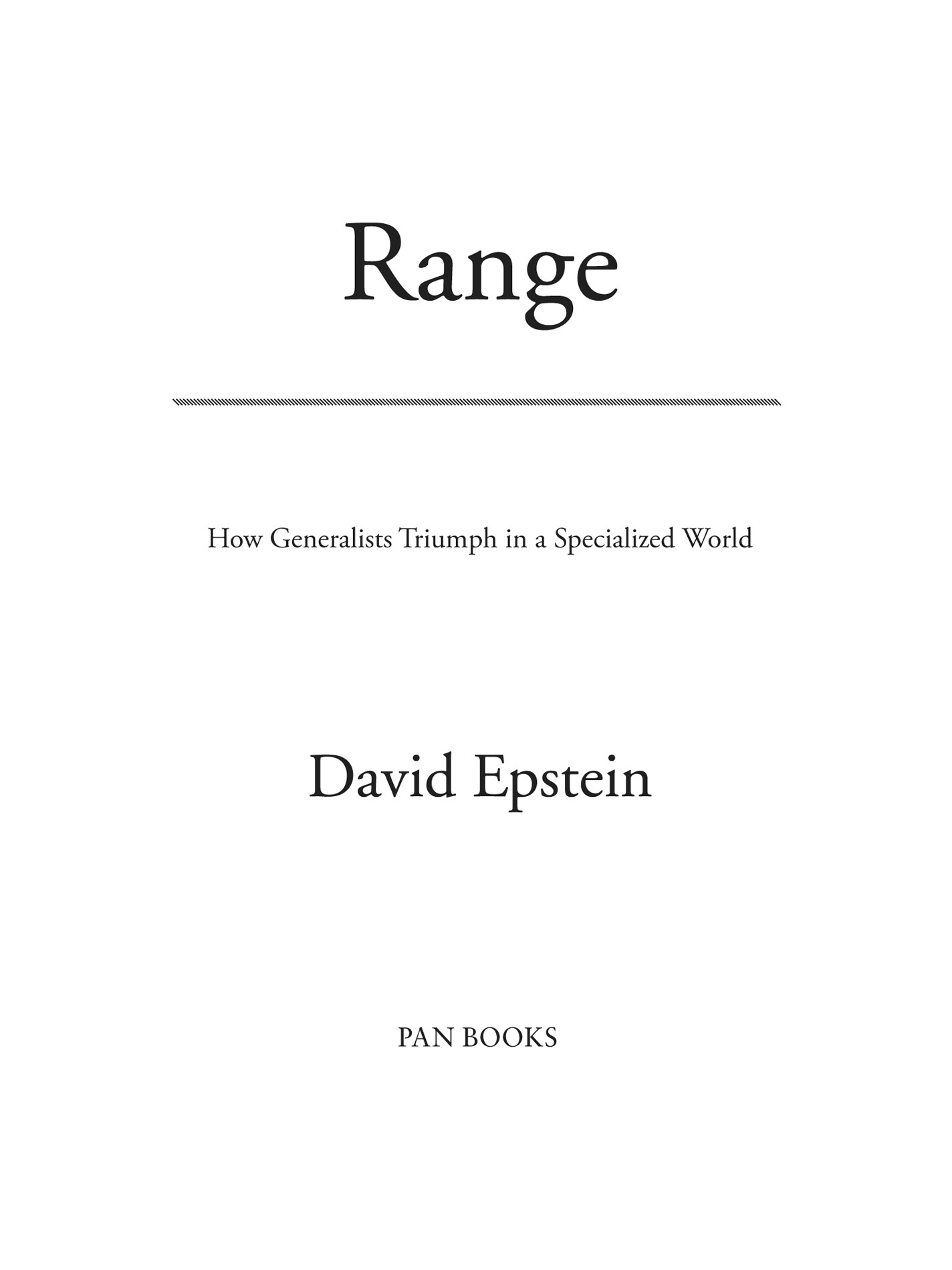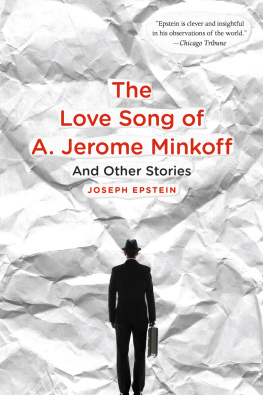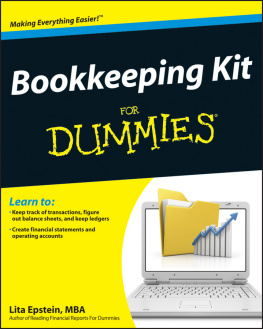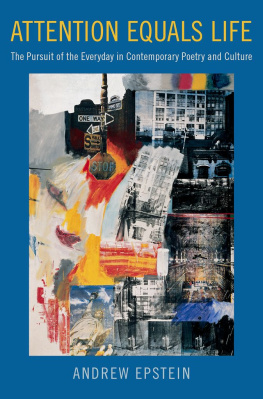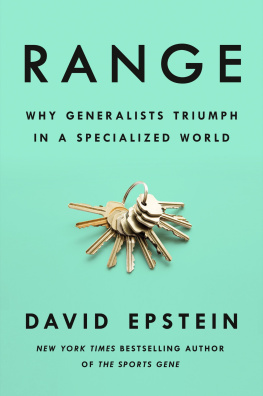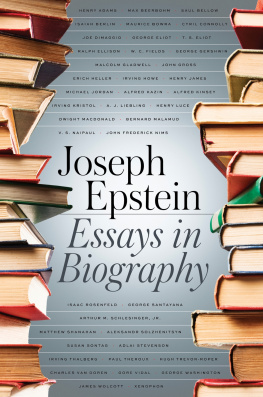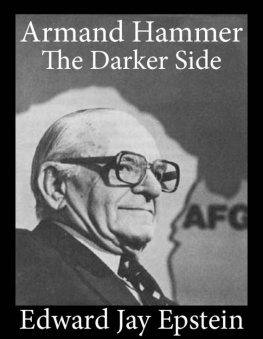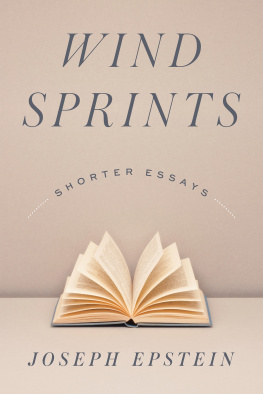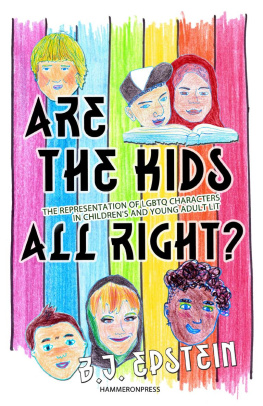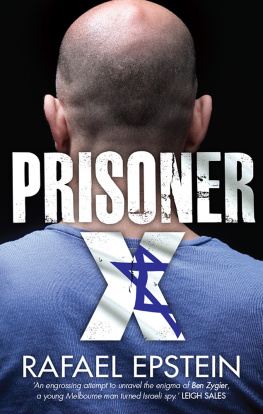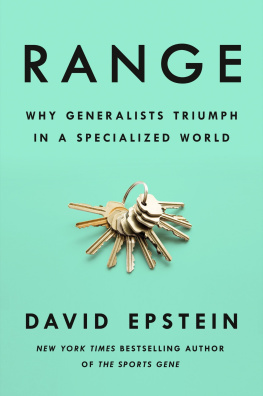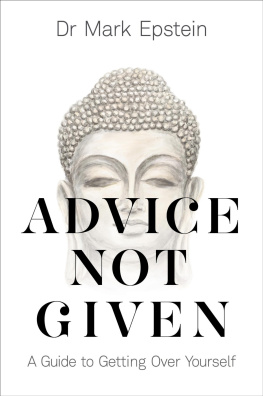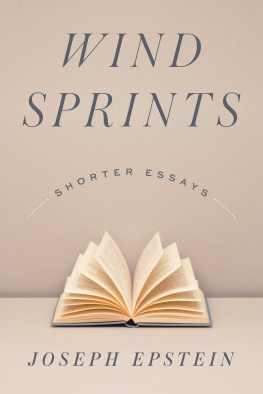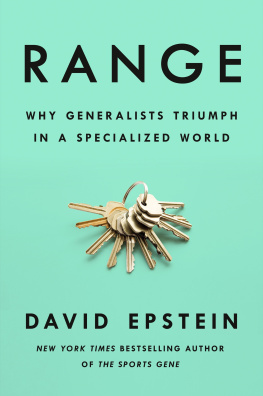For Elizabeth,
this one and any other one
Contents
And he refused to specialize in anything, preferring to keep an eye on the overall estate rather than any of its parts.... And Nikolays management produced the most brilliant results.
Leo Tolstoy, War and Peace
No tool is omnicompetent. There is no such thing as a master-key that will unlock all doors.
Arnold Toynbee, A Study of History
INTRODUCTION
Roger vs. Tiger
LETS START WITH a couple of stories from the world of sports. This first one, you probably know.
The boys father could tell something was different. At six months old, the boy could balance on his fathers palm as he walked through their home. At seven months, his father gave him a putter to fool around with, and the boy dragged it everywhere he went in his little circular baby walker. At ten months, he climbed down from his high chair, trundled over to a golf club that had been cut down to size for him, and imitated the swing hed been watching in the garage. Because the father couldnt yet talk with his son, he drew pictures to show the boy how to place his hands on the club. It is very difficult to communicate how to putt when the child is too young to talk, he would later note.
At twoan age when the Centers for Disease Control and Prevention list physical developmental milestones like kicks a ball and stands on tiptoehe went on national television and used a club tall enough to reach his shoulder to drive a ball past an admiring Bob Hope. That same year, he entered his first tournament, and won the ten-and-under division.
There was no time to waste. By three, the boy was learning how to play out of a sand twap, and his father was mapping out his destiny. He knew his son had been chosen for this, and that it was his duty to guide him. Think about it: if you felt that certain about the path ahead, maybe you too would start prepping your three-year-old to handle the inevitable and insatiable media that would come. He quizzed the boy, playing reporter, teaching him how to give curt answers, never to offer more than precisely what was asked. That year, the boy shot 48, eleven over par, for nine holes at a course in California.
When the boy was four, his father could drop him off at a golf course at nine in the morning and pick him up eight hours later, sometimes with the money hed won from those foolish enough to doubt.
At eight, the son beat his father for the first time. The father didnt mind, because he was convinced that his boy was singularly talented, and that he was uniquely equipped to help him. He had been an outstanding athlete himself, and against enormous odds. He played baseball in college when he was the only black player in the entire conference. He understood people, and discipline; a sociology major, he served in Vietnam as a member of the Armys elite Green Berets, and later taught psychological warfare to future officers. He knew he hadnt done his best with three kids from a previous marriage, but now he could see that hed been given a second chance to do the right thing with number four. And it was all going according to plan.
The boy was already famous by the time he reached Stanford, and soon his father opened up about his importance. His son would have a larger impact than Nelson Mandela, than Gandhi, than Buddha, he insisted. He has a larger forum than any of them, he said. Hes the bridge between the East and the West. There is no limit because he has the guidance. I dont know yet exactly what form this will take. But he is the Chosen One.
This second story, you also probably know. You might not recognize it at first.
His mom was a coach, but she never coached him. He would kick a ball around with her when he learned to walk. As a boy, he played squash with his father on Sundays. He dabbled in skiing, wrestling, swimming, and skateboarding. He played basketball, handball, tennis, table tennis, badminton over his neighbors fence, and soccer at school. He would later give credit to the wide range of sports he played for helping him develop his athleticism and hand-eye coordination.
He found that the sport really didnt matter much, so long as it included a ball. I was always very much more interested if a ball was involved, he would remember. He was a kid who loved to play. His parents had no particular athletic aspirations for him. We had no plan A, no plan B, his mother would later say. She and the boys father encouraged him to sample a wide array of sports. In fact, it was essential. The boy became unbearable, his mother said, if he had to stay still for too long.
Though his mother taught tennis, she decided against working with him. He would have just upset me anyway, she said. He tried out every strange stroke and certainly never returned a ball normally. That is simply no fun for a mother. Rather than pushy, a Sports Illustrated writer would observe that his parents were, if anything, pully. Nearing his teens, the boy began to gravitate more toward tennis, and if they nudged him at all, it was to stop taking tennis so seriously. When he played matches, his mother often wandered away to chat with friends. His father had only one rule: Just dont cheat. He didnt, and he started getting really good.
As a teenager, he was good enough to warrant an interview with the local newspaper. His mother was appalled to read that, when asked what he would buy with a hypothetical first paycheck from playing tennis, her son answered, a Mercedes. She was relieved when the reporter let her listen to a recording of the interview and they realized thered been a mistake: the boy had said Mehr CDs , in Swiss German. He simply wanted more CDs.
The boy was competitive, no doubt. But when his tennis instructors decided to move him up to a group with older players, he asked to move back so he could stay with his friends. After all, part of the fun was hanging around after his lessons to gab about music, or pro wrestling, or soccer.
By the time he finally gave up other sportssoccer, most notablyto focus on tennis, other kids had long since been working with strength coaches, sports psychologists, and nutritionists. But it didnt seem to hamper his development in the long run. In his midthirties, an age by which even legendary tennis players are typically retired, he would still be ranked number one in the world.
In 2006, Tiger Woods and Roger Federer met for the first time, when both were at the apex of their powers. Tiger flew in on his private jet to watch the final of the U.S. Open. It made Federer especially nervous, but he still won, for the third year in a row. Woods joined him in the locker room for a champagne celebration. They connected as only they could. Ive never spoken with anybody who was so familiar with the feeling of being invincible, Federer would later describe it. They quickly became friends, as well as focal points of a debate over who was the most dominant athlete in the world.

